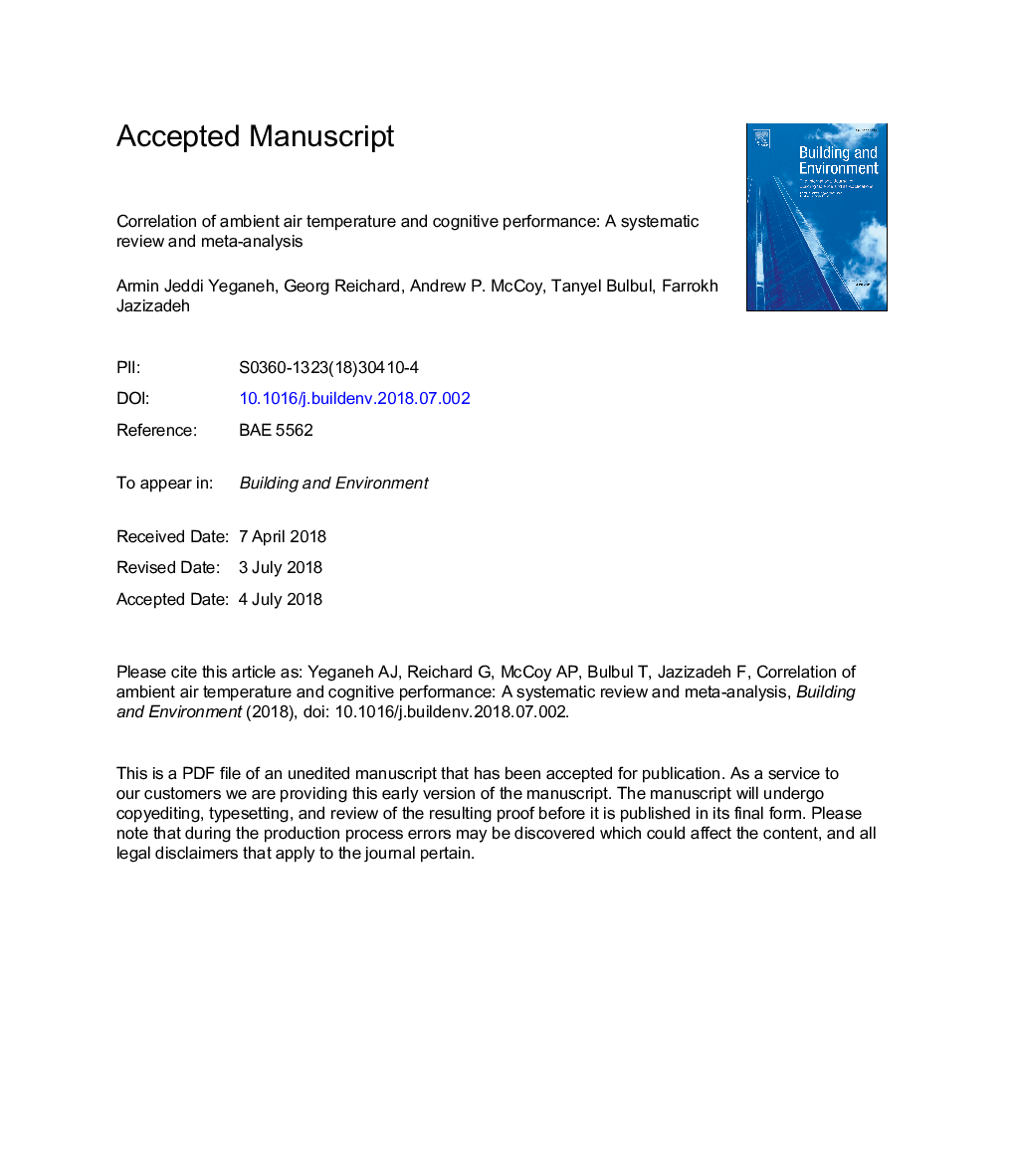| Article ID | Journal | Published Year | Pages | File Type |
|---|---|---|---|---|
| 6696449 | Building and Environment | 2018 | 33 Pages |
Abstract
Despite their impact on work performance, cognitive responses to thermal variations in buildings have not been accurately quantified. Practical limitations in individual laboratory experiments with limited participants often cause low statistical power and restrict generalizability. Thus, inconsistencies in individual studies motivate summary reviews and meta-analyses. The objective of this study is to estimate the correlation between ambient air temperature and cognitive performance through a systematic literature review. We identified laboratory experiment reports published between 1980 and 2018, out of which 45 passed the targeted inclusion and exclusion criteria set forward by the scope of this study. To obtain summary effect statistics, 28 reports were included in a single analysis conducted by the use of the Comprehensive Meta-Analysis software. Under laboratory conditions with fixed clothing values, studies with the weighted mean of 4.34â¯Â°C, 10.04â¯Â°C, and 26.68â¯Â°C increase in the control air temperature show about % 0.40, % 5.37, and % 7.97 reductions in cognitive performance, respectively. Heat stress causes the most significant decline in the most attention-demanding tasks. The results show an overall decline in both speed and accuracy measures due to changes in ambient air temperature. Accuracy measures and longer exposures are associated with relatively more decline in heat and cold. The estimated temperature-performance correlation follows a bell-shaped curve centered around the average control temperature. The results help inform policy and design decisions concerned with thermal comfort and upper limits for occupational exposure to cold and heat.
Related Topics
Physical Sciences and Engineering
Energy
Renewable Energy, Sustainability and the Environment
Authors
Armin Jeddi Yeganeh, Georg Reichard, Andrew P. McCoy, Tanyel Bulbul, Farrokh Jazizadeh,
